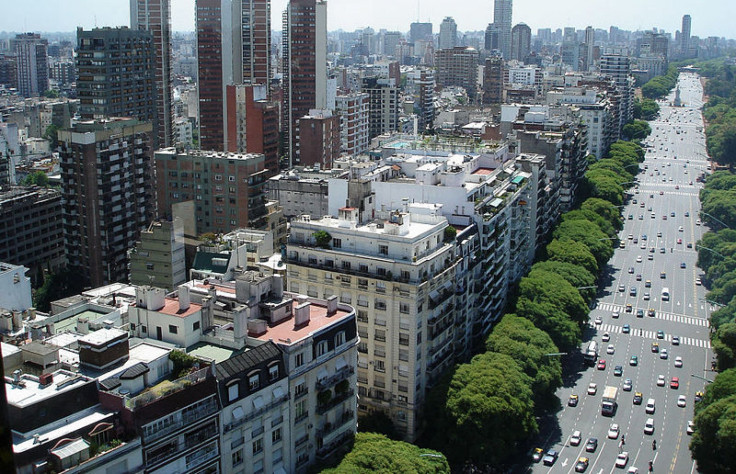Argentinian GDP Growth Is Slowing Down As Pre-election Fiscal Stimulus Gets Dialed Back: Capital Economics

Argentina's economy will keep slowing down next year, despite decent third-quarter 2013 growth, Capital Economics analysts predicted Thursday.
The firm’s Latin America update forecasts that Argentina's gross domestic product will grow at about a 4 percent annual rate in the third quarter of this year and about 3 percent for all of 2013. That’s slower than the second quarter’s 4.5 percent but an improvement from last year’s stagnation.
Capital Economics attributes this growth partly to Argentina’s recent rise in government spending, largely running up to last Sunday’s midterm election, and expects the government’s fiscal support to fade as 2013 ends.
“A key factor in Argentina’s recent rebound has been a loosening of the public pursestrings,” the report’s author, Michael Henderson, wrote. “We expect the public sector deficit to exceed 2.5 percent of GDP in 2013 – the highest level since 2000.”
Capital Economics collects its own data for its Argentina Activity Indicator to give more realistic forecasts, as Argentina's official GDP data is widely acknowledged to overstate the true pace of growth.
Since a change in Argentina’s Central Bank Charter in 2012, which gave the central government more control of the bank, it has increasingly printed pesos to lend to the Treasury and finance a budget deficit. Without this support, Capital Economics analysts predict, Argentina’s budget deficit would be closer to 4 percent of GDP.
Growth in consumer spending has also helped push the Argentinian economy. The report estimates that the service sector grew by 2.9 percent in the third quarter from last year, an improvement from the second quarter’s 2.6 percent growth, but below the 5 percent rates of 2010-2011.
However, the agricultural sector is expected to decline after its current expansion, and industrial production has faltered.
“This is not a massive surprise given that much of the recent boost can be traced back to tax breaks in Brazil which temporarily lifted demand for Argentine auto exports,” Henderson wrote. “Manufacturers in most other sectors of the economy continue to be weighed down by an overvalued peso and a distorted business environment.”
© Copyright IBTimes 2024. All rights reserved.





















